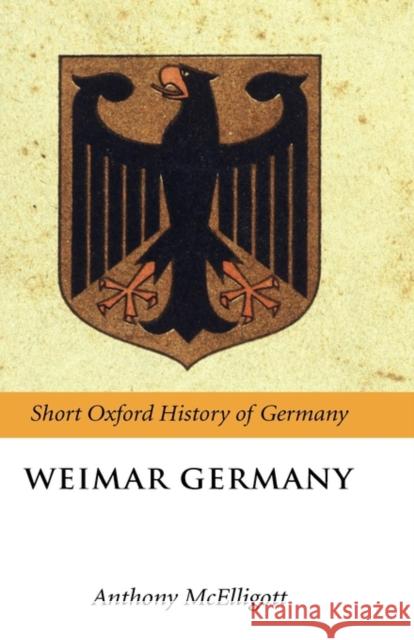Weimar Germany » książka
Weimar Germany
ISBN-13: 9780199280063 / Angielski / Twarda / 2009 / 304 str.
Weimar Germany
ISBN-13: 9780199280063 / Angielski / Twarda / 2009 / 304 str.
(netto: 601,35 VAT: 5%)
Najniższa cena z 30 dni: 578,97
ok. 16-18 dni roboczych.
Darmowa dostawa!
The Weimar Republic was born out of Germany's defeat in the First World War and ended with the coming to power of Hitler and his Nazi Party in 1933. In many ways, it is a wonder that Weimar lasted as long as it did. Besieged from the outset by hostile forces, the young republic was threatened by revolution from the left and coups d'etats from the right. Plagued early on by a wave of high-profile political assassinations and a period of devastating hyper-inflation, its later years were dominated by the onset of the Great Depression. And yet, for a period from the mid-1920s it looked as if the Weimar system would not only survive but even flourish, with the return of economic stability and the gradual reintegration of the country into the international community.
With contributions from an international team of ten experts, this volume in the Short Oxford History of Germany series offers an ideal introduction to Weimar Germany, challenging the reader to rethink preconceived ideas of the republic and throwing new light on important areas, such as military ideas for reshaping society after the First World War, constitutional and social reform, Jewish life, gender, and culture.
"











